Please Follow us on social media >>>>
THE CHALLENGES AND SOLUTIONS OF REGISTERING A BUSINESS IN NIGERIA.
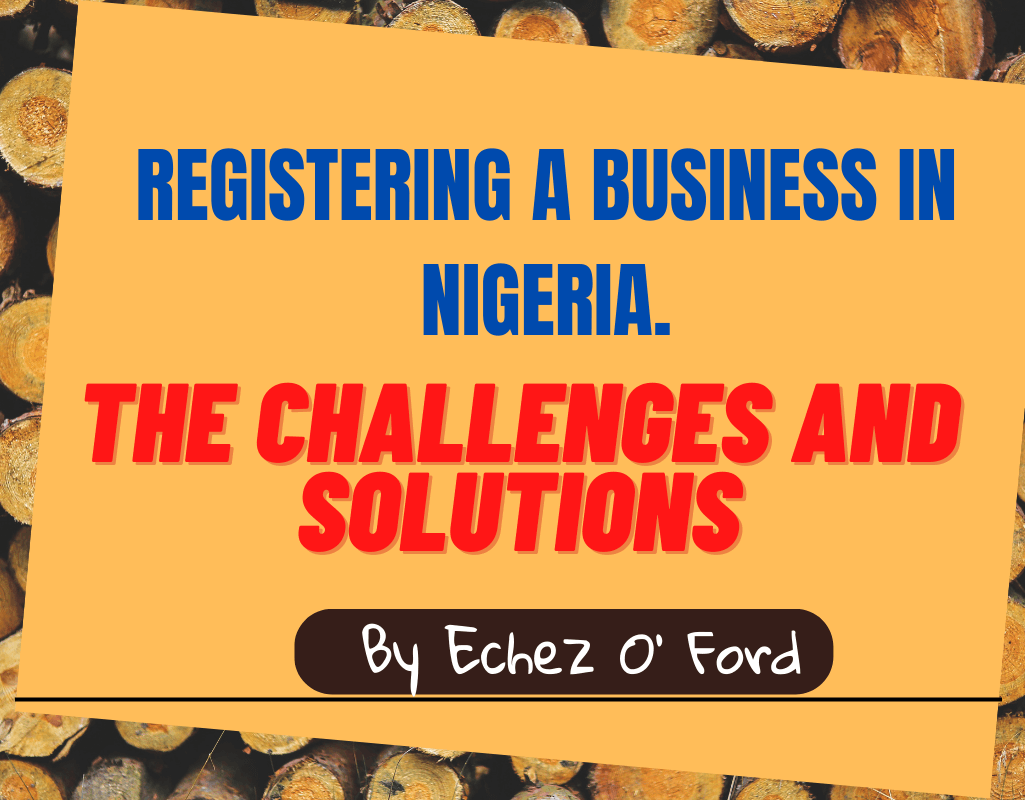
Challenges of Registering a Business in Nigeria, Touts, Agbero Scammers, etc.
You are thinking of registering a business in Nigeria, but you are skeptical about it because of all the challenges associated with business registration.
Well, this article provides a practical guide on how to spot and overcome the troubles of getting your business enlisted with the CAC. (Corporate Affairs Commission).
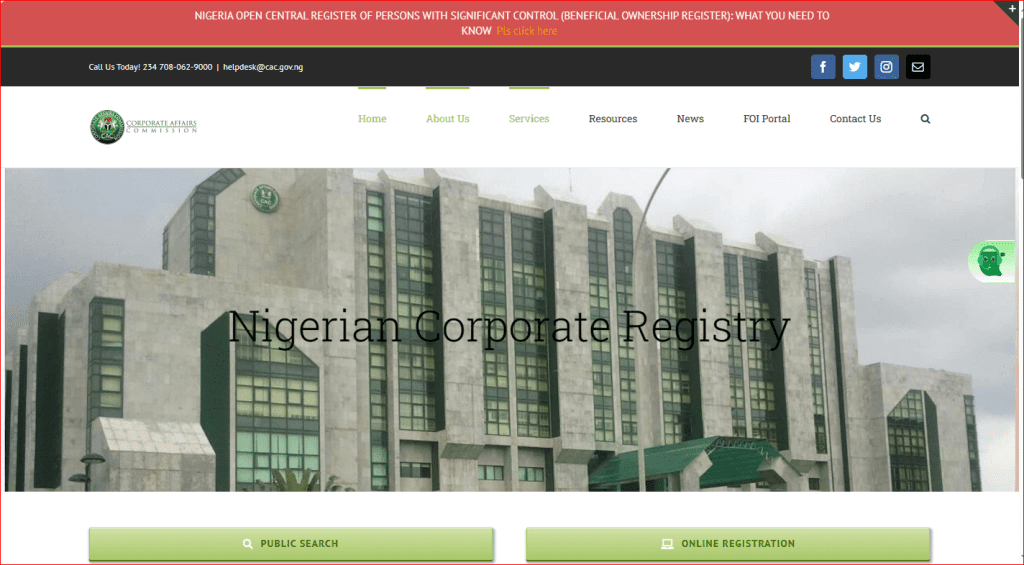

This guide assumes that you have already chosen a niche and probably have a business going on. Although it is not a requirement, it will help you to come up with the right name for registering your business in Nigeria.
Some of the challenges you must deal with include Touts, Agbero, and scams. In this article, I will list some more challenges and solutions you are most likely to face as you attempt to get your business listed with the CAC.
Who will this article benefit? If you are an e-commerce owner, a freelancer, a brick-and-mortar business owner, a mini-importer who wants to take his business to the next level, a blogger, or a webmaster doing business in Nigeria, you are most likely going to have to register your business at some time.
If you have not started a small business, already, now may be the best time to start. Go check this article on “How to start a small business in Nigeria today, even if you have no money.”
7 Common Problems You Can Encounter in Registering Your Business in Nigeria?
Several problems can be encountered when registering a business in Nigeria. The moment you take the first step in registering your business, you are faced with many challenges. Some of them include Touts, Agbero, and scammers.
I will try to cover as many of them as possible below. Some of the problems include:
1. The complexity of the business registration process:
The process of registering a business in Nigeria can be quite complex and time-consuming, especially for those who are not familiar with the laws and regulations.
Bureaucracy and corruption: There is often a significant amount of bureaucracy and corruption involved in the process, which can make it difficult to navigate and can lead to delays and additional costs.
2. Lack of transparency:
The registration process can be opaque and difficult to understand, making it hard for people to know what is required of them and what to expect.
3. Limited resources:
Starting a business can be challenging, especially for those who lack the resources to pay the necessary fees and comply with the regulations.
4. Limited access to information:
There is often limited access to accurate and up-to-date information regarding what is obtainable about the registration process. This can make it hard for you to know what you need to do. Even when there are government agencies instituted to provide information, they are often not accessible to those who need the information.
5. Legal requirements:
Not all businesses are required to go through the same registration process. Depending on your type of business, location, and scale, the process may be slightly different. There may be legal requirements that are not well-known to you as an entrepreneur.
So, you will need to be acquainted with the necessary legal requirements to carry out your type of business in Nigeria. However, this process does not come at a cheap price. To hire a legal representative who knows his onions is a high price to pay. This could be a challenge if you are constrained by funds.
6. Lack of support:
There is often a lack of support available to help people navigate the registration process and comply with the laws and regulations put in place by relevant authorities. This makes it difficult for would-be business owners to be inclined to register their businesses.
7. Miss Information:
The internet is supposed to be a reliable source of information. But the reality is far from being reliable. You can easily be misled if you solely rely on the ‘Do It Yourself approach all over the internet.
Pay Special Attention to the Following 7 Challenges of Business Registration
1. Inadequate Infrastructure:
Nigeria’s business registration process is still largely paper-based, which can lead to delays and errors. Although much effort has been made in recent years to digitalize the process. Additionally, the infrastructure for business registration and other related activities in Nigeria is inadequate and underdeveloped, which can make the process more difficult and time-consuming.
2. Lack or no Access to Finance:
Registering a business in Nigeria can be expensive, and many entrepreneurs lack the financial resources to pay for the necessary fees and comply with the regulations. This can make it difficult for them to get their business off the ground.
3. Limited Access to Network and Mentorship:
Many entrepreneurs in Nigeria are not connected to a strong network of experienced business owners, which can make it difficult for them to learn from others and get the guidance they need to succeed. And some are not willing to research to educate themselves.
4. Political Instability:
Nigeria is a politically unstable country, which can lead to some uncertainty in the business environment and make it harder for businesses to operate. This problem alone hampers investors from the diaspora.
5. High costs of Registering a business in Nigeria:
The costs associated with registering a business in Nigeria, including filing fees, stamp duty fees, and registration fees, can be high and may be a barrier for some entrepreneurs.
This is especially true if you are constrained with time. Or if you have not done your homework properly. Officials and agents can exploit any loophole in your business registration documents to increase the price.
6. Currency Fluctuation:
Nigeria is a country with a relatively high inflation rate, which can make it difficult for businesses to plan for the future and can make it more challenging for them to access the funding they need. This, combined with the fluctuation of the exchange rate, can make it difficult for businesses to predict their revenue and expenses.
7. Touts:
You may be surprised that Touts are a big problem in Nigeria’s business system. Here is the thing, I will dedicate a subheading to discuss the issue of touts.
Beware of Touts While Registering a Business in Nigeria
Touts, also known as “agberos” in Nigeria, can indeed be a problem with business registration in Nigeria, as they often try to take advantage of people who are unfamiliar with the process. Some of the ways touts can be a problem include:
- Offering assistance with registration: Touts may offer to help you with the business registration process, but they may charge excessive fees, provide inaccurate or incomplete information, or not deliver on their promises.
- Impersonating government officials: it is not uncommon for them to pose as government officials or employees of legitimate organizations to trick people into paying fees or providing personal information.
- Offering shortcuts: Touts may offer to expedite the registration process or bypass certain requirements for a fee, but this can be illegal and may result in problems with the business later on This is the most common menace of touts. As everyone may naturally not want to spend countless days registering a business, the agberos take advantage of this desperation.
- Offering fake licenses or documents: Touts may offer to provide fake licenses, permits, or other documents that are required for business registration, which can lead to legal trouble later on.
Things To Help You Cope with Some of The Challenges of Business Registration in Nigeria
It is important to be aware of the above scams and be skeptical of unsolicited offers of assistance.
Also, take steps to verify the credentials of anyone you’re dealing with, research the company or individual, and never provide personal or financial information unless you are certain of the identity of the person or organization you are dealing with.
Seek assistance from the relevant authorities or consulting firms that are not touts, as they are trained professionals and are more likely to provide accurate and reliable information.
Also, note that the aforementioned challenges can vary depending on the type of business and the location of the business. It’s also fair to mention that these challenges are not unique to Nigeria and can be found in other countries as well.
What can you do about the above? Overall, it is important to seek professional help and be prepared to navigate potential challenges and obstacles to successfully register your business in Nigeria.
A good practice is word-of-mouth recommendation. If your friends, families, and co-workers have successfully registered a business before, ask them for the contacts of the agency or company that did it for them.
Scams Associated with Registering a Business in Nigeria
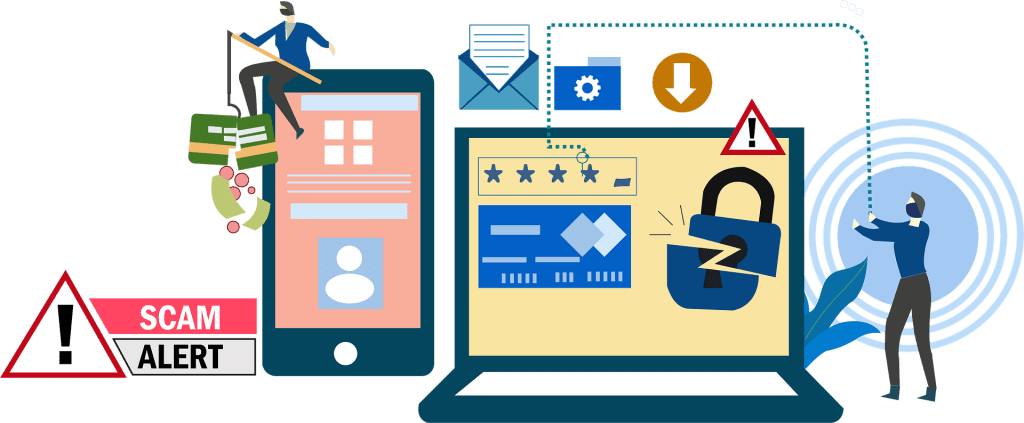

Scams are a common problem in Nigeria, and businesses and individuals can fall victim to them during the process of registering a business. Some of the most common scams you are likely to encounter include:
Advance fee scams:
These scams involve someone requesting an advance payment or fee to process a business registration or provide a service, but then failing to deliver on their promises or even disappearing with your money.


Impersonation scams in business registration:
These scams involve someone posing as a government official.
Or representative of a legitimate organization to trick people into paying fees and providing personal information.
Usually seen at the gates and entrances of many government parastatals in Nigeria.
They will be all over you the moment you want to go in to do any form of business. Do not pay attention to them no matter the type of offer they make you.
You are most likely to fall victim to this if you are in any form of a hurry. Either because you arrived late at the agency office or because the next day is a weekend.
Or a kind of public holiday and you do not want to go home without results.
Phishing scams while registering a business:
These scams involve someone sending an email or text message that appears to be from a legitimate source.
Such as a bank or government agency, to trick you into providing personal information or money. The remedy is to never reply, answer, or click through on any link you do not trust or solicit for.
The Federal Trade Commission Consumer Advice, an official website of the United States government gives four things that can help you avoid phishing scams. They are:
- Protect your computer with security software.
- Set your cell phones to update automatically.
- Use multifactor authentication on your accounts
- Protect your data by backing it up.
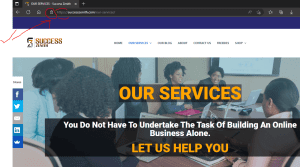

Business registration scams:
These scams involve someone offering to register a business on behalf of the entrepreneur. And later running away with your money.
They serve as agents to help you by passing some seemingly difficult requirements associated with business registration.
It is amazing how people are willing to part with their money because they want to save time. This desire to save time has landed many people into losing money in the process of business registration.
Investment scams:
These scams involve someone offering a high-return investment opportunity. But the investment turns out to be a fraud, and the money is lost. While you may think this does not apply to your desire to register a company, here is how they work.
- You are offered an investment opportunity, and
- to be eligible, you are required to register your business name.
- The scammers may offer to do registration for you at almost half the official price.
- You become interested and pay.
At this stage, any money you pay may most certainly be lost. And any promise of profit will have vanished into thin air.
Internet scams:
Scammers may use online platforms to solicit money or personal information from individuals looking to register a business in Nigeria.
Sometimes they send emails. At other times they text message you. They make it appear to be from a legitimate source, such as a bank or government agency. Then they ask for payment or personal information.
Usually, no government agency will ask you for money too soon. You only pay for services after completing some kind of form and this should be done right on the agency’s website.
This type of scam and scammers scout the internet for personal information. Like phone numbers, email addresses, social media handles, and so on.
Phone scams:
Scammers may use phone calls to try to trick individuals into providing personal information or money. They may claim to be from a government agency or a legitimate organization and ask for payment or personal information to register your business.
If you are not expecting a call from someone, be very careful how you divulge vital information to them no matter who they say they were.
Employment scams:
Scammers may offer employment opportunities with a business that does not exist and ask for money to cover expenses such as training or background checks.
Always verify and ask questions about any company you intend to apply for business registration on. Look for reputable organizations and only make payment when there is a receipt offered for the said payment.
Fraudulent business registration websites:
People create websites and blogs to make money legitimately. However many Scammers may create fake websites that look like legitimate government or business registration sites and ask for personal information or payment.
It is pertinent to verify the authenticity of any site you intend to do business with. A simple rule of thumb is to look out for the padlock on your browser bar and make sure the site is https:// and not http:// (without the ‘s’).
Any site without the padlock is insecure and may be a potential fake site. This is especially important if you are going to share sensitive information like credit cards, etc.
Echez O’Ford
Another important thing to make sure of is that when you visit a website owned by the Nigerian government, you must see the domain name ends with .ng.
This is the official top-level domain name for government agencies and parastatals.
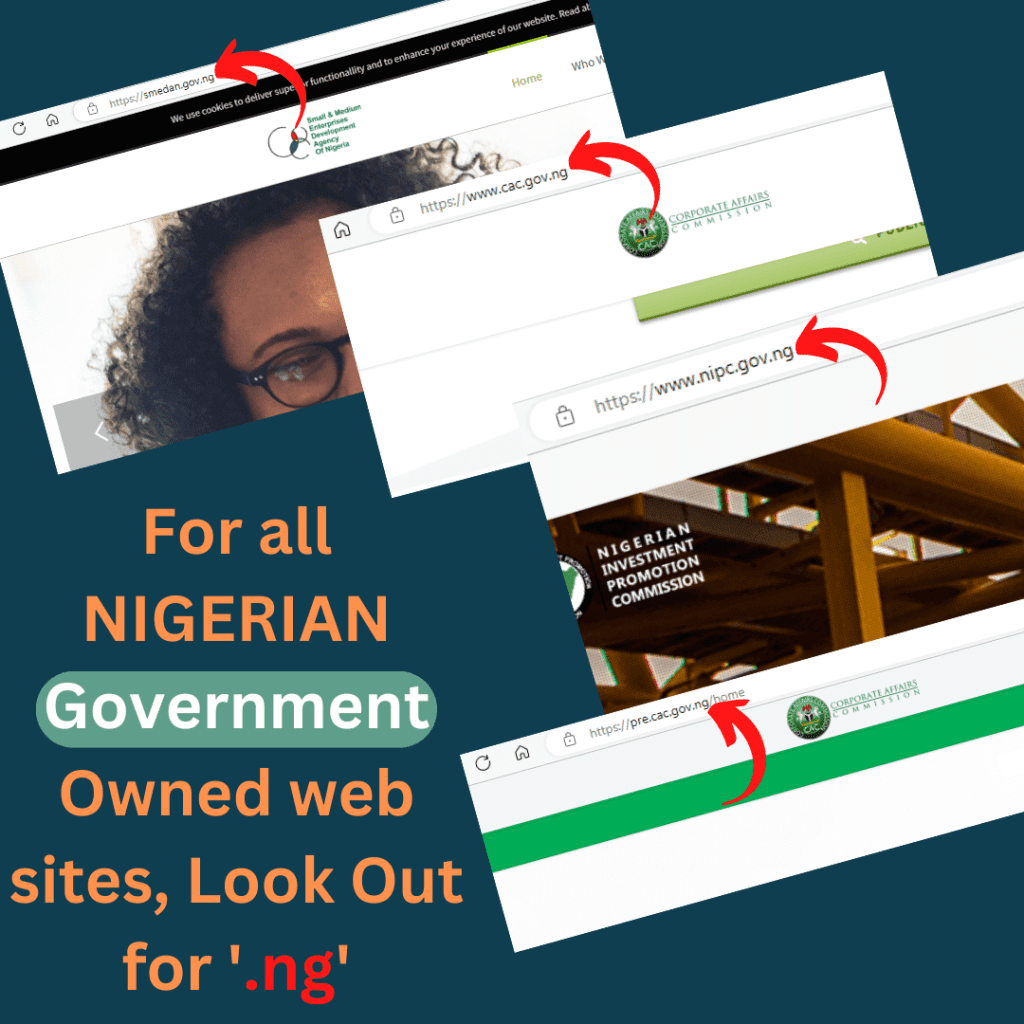

Also, be cautious and verify the legitimacy of any, email, phone call, or text message before providing any personal information or money.
It’s advisable to check the official government websites for more information on the registration process.
Report scams while registering your business in Nigeria:
You will be doing the public a lot of good by reporting any scam attempts to the relevant authorities, such as the police, and also to the Nigerian Communication Commission (NCC) in the case of an online scam.
It is also important to share the information with family, friends, and colleagues to help them avoid falling victim to these scams.
You may even share this useful information on social media, where it can have a wider reach.
To protect against scams, always be vigilant and skeptical of unsolicited offers, especially those that seem too good to be true.
It’s also important to verify the credentials of anyone you’re dealing with, research the company or individual, and never provide personal or financial information unless you are certain of the identity of the person or organization you are dealing with.
Always be vigilant and skeptical of unsolicited offers, especially those that seem too good to be true
“Success Zenith”
If you pay attention to the points mentioned above, you will be more likely to avoid some, or all of the possible problems faced by those who want to register their business themselves in Nigeria.
I sure hope you find this helpful. If so, please share this on your social media handles.
Comment and tell us what you think perhaps add to the list so others can benefit.




[…] with them, however, it mostly depends on the type of business you are starting. There are so many business registration challenges you need to be aware of. So do your due diligence before you embark on the […]
Its like you read my mind! You seem to grasp a lot about this, like you wrote the ebook in it or something.
I feel that you just can do with some p.c. to drive the message house a little bit, however instead
of that, this is fantastic blog. An excellent read. I will definitely be back.
Campaign Coverage – topnotchupdate.com.ng,
Thank you so much, topnotch for taking the time to read our content, I am sincerely that happy you find it helpful. In due time, we will shape it in ebook format with more practical and actionable steps for anyone who wants to register their business in Nigeria. Remember, we are always here to help with your content solutions.
[…] It is difficult to register your business in Nigeria […]